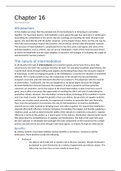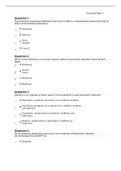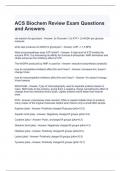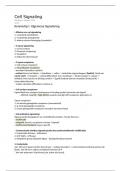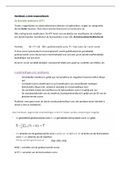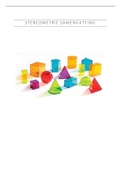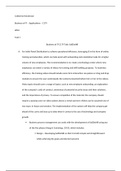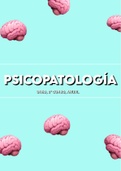Intermediaries
Introduction
In this chapter we show that the principal role of intermediaries is to bring buyers and sellers
together. For travel and tourism, intermediation comes about through tour operators or wholesalers
assembling the components of the tourist trip into a package and retailing the latter through travel
agents, who deal directly with the public. However, as this chapter shows, this is not the only way by
which the tourist product reaches the customer and we discuss several other distribution channels.
The structure of intermediation is complicated by the fact that some retail agents and some of the
principal suppliers, such as airlines, also act as tour wholesalers. Much of this trend has been driven
by online developments and the rapid adoption of electronic technologies in facilitating the supply of
and demand for tourism products.
The nature of intermediation
In all industries the task of intermediaries is to transform goods and services from a form that
consumers do not want into a product that they do want. For everyday household requirements, this
is performed mainly through holding bulk supplies and breaking these down into amounts required
by individuals, as well as bringing the goods to the marketplace. In tourism the situation is somewhat
different, for it is quite possible to buy the components of the tourism trip (accommodation,
transport, excursions and entertainment) directly from producers. This dispenses with the need for
an intermediary. Traditionally, this has not happened to any great degree because the linkages
(termed distribution channels) between the suppliers of tourism products and their potential
customers are imperfect, and so the output of the travel intermediary is what is termed a search
good, since it offers consumers the opportunity of avoiding the effort and cost of undertaking the
production activity. However, the information communications technology (ICT) revolution in recent
years has made it easier, through the growth of low-cost airlines, the provision of supplier websites
and the use of online social networks, for experienced travellers to assemble their own itineraries.
Thus, from the perspective of economics, the role of intermediaries is to improve distribution
channels and so make markets by bringing buyers and sellers together. It is argued that distribution
channels often both influence consumer behaviour by branding the product and thereby supplying a
credence good , as well as determining the ability of the industry to respond to consumers’ requests
efficiently in terms of the product as a search good. In this manner, distribution channels quite clearly
help determine the competitiveness of suppliers and destinations. The bulk of this work falls upon
the tour operator or wholesaler who packages the main components of the tourist trip into a single
product and sells this at one price through retail travel agents, or directly through an online portal.
Benefits
By making markets, travel intermediaries bestow benefits on producers, consumers and the
destination. These benefits include the following:
Producers:
o Are able to sell in bulk and so transfer risk to the tour operator, though wholesalers
do attempt to cover themselves by a variety of agreements and release clauses. The
latter may vary from four or more weeks to seven days.
, o Can reduce promotion costs by focusing on the travel trade, rather than consumer
promotion, which is much more expensive, though now made simpler by website
provision that potential tourists consult as a matter of course.
Consumers:
o Can avoid a detailed search and transaction costs by being able to purchase an
inclusive tour. Tours have been declining rapidly due to ICT developments.
o Gain from the specialist knowledge of the tour operator and the fact that the
uncertainties of travel are minimised.
o Often gain most from lower prices, notably in the case of resorts dealing with large
numbers of visitors. In such destinations wholesalers are able through their buying
power to negotiate discounts of up to 60% off the normal tariff.
Destinations:
o Especially in developing countries where budgets are limited, may benefit
considerably from the international marketing network of tour operators. However,
it is naïve to expect, as some countries do, that this should be a responsibility of
these companies, particularly as the Internet has made it so much easier for national
tourist organisations (NTOs) to promote their tourist areas.
Structure
A schematic diagram of the structure of distribution channels is shown in Figure 16.1.
Figure 16.1 Structure of distribution channels
The founding companies of today’s travel trade, Thomas Cook and American Express, are both travel
agents and wholesalers, with both demonstrating an increasing online presence, and so history is on
the side of the retail agent that buys directly from producers. Through agency agreements, retailers
sell the individual components of the trip, but they may also put together their own brand of tours,
over-brand another tour operator’s brochure or have a specialist wholesaler put together a brochure
for them.
Traditionally, travel agents have made the bulk of their money from selling inclusive tours and airline
tickets, though the situation regarding the latter has now passed because the major full-service
carriers, in the face of competition from low-cost carriers, have cut their distribution costs by
removing commissions to travel agents in an effort to lower their bottom-line costs. Agents have
responded to this by charging a handling fee for customers booking this way, but still have access to
flight consolidators (wholesalers of airline tickets) to secure special deals.
At one stage it was thought that the proliferation of new technologies would lead to the demise of
traditional travel agents but the availability of holiday products online has levelled out the costs of
intermediation, allowing them to compete effectively with direct-sell brands. Rather than buy online,
many customers still prefer to deal with an intermediary, whether it is the tour operator’s own retail
agent or an independent.
Commentators also thought that the increasing sophistication of the travelling public, combined with
the ease of making reservations, would lead to the demise of the package holiday and
disintermediation of the tourism distribution system. It is estimated that more than 50% of holidays
in developed economies are self -assembled, increasingly through smartphones and tablets, but this
has exposed those who create their own holidays to growing amounts of holiday fraud through
bogus websites or fraudsters hacking into existing reservation systems and using fake e-mails to
demand payment to their own accounts by bank transfer, for which there is no financial protection.
While it is true that more people are travelling independently, evidence to date, as noted above,
suggests that traditional purchasing patterns will continue in many markets, for it still remains the



